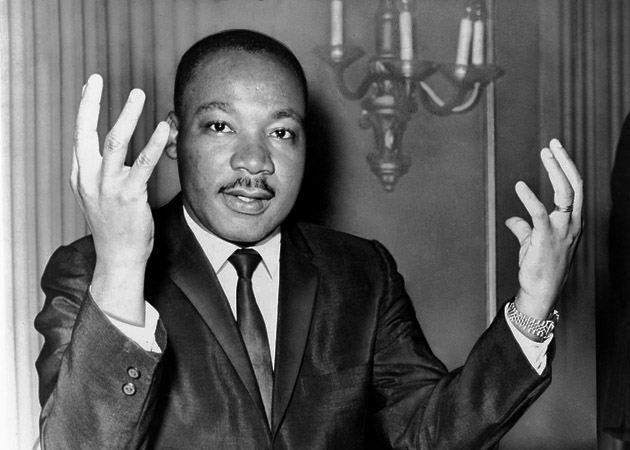Very few debates can effectively divide Americans more than the politics of procreation. At least, since the 1960s, for cultural and some political conservatives, the role and essence of a woman’s being as life-bearer has been a non-negotiable characteristic of their philosophy.
One thing the inherent tribalism of the procreation debate permits is that institutions that are seen to epitomize the values of the opposition are targeted.
And that is how Planned Parenthood gets all the hostility.
But apart from its present status as supporters of what it describes as a woman’s right to choose what to do with her body, Planned Parenthood is dogged with the historical burden of clarifying what its establishment meant for America’s people of African descent.
Margaret Sanger, the woman whose advocacy chiefly led to the founding of Planned Parenthood in 1952, was a known eugenicist.
Eugenics, the snobbery of engineering a “perfect” society by controlling who has children with whom and what qualities to perpetuate through breeding, was unsurprisingly important to many European and American racists after slavery.
In its most extreme form, eugenics was actualized by Nazi Germany during the period of the Holocaust. But even before WWII, Sanger did embrace eugenics, to an unambiguous extent.
She once wrote in an essay titled, The Eugenic Value of Birth Control Propaganda, that the “consequences of breeding from stock lacking human vitality always will give us social problems and perpetuate institutions of charity and crime.”
She was unapologetic in arguing that birth control was the only way society could produce the kind, as well as the number, of offsprings it requires. The utility of birth control was therefore twofold.

What is of contention here is not so much the question of having a finger on the scale of the population. Many conservatives even understand the need for contraception.
But what kind of people did Sanger want to see? In a speech in 1921 titled “The Morality of Birth Control”, Sanger divided the American society into, “educated and informed”, “the intelligent and responsible” and “irresponsible and reckless people”.
While the first two were able or desired to control procreation knowing what was to be known about economics and health, Sanger thought “There is no doubt in the minds of all thinking people that the procreation of [the last] group should be stopped.”
Sanger did not identify the “irresponsible and reckless people” with African-Americans in 1921 or in any other known public lecture.
Instead, although she agreed with most other eugenicists of her time, her perspective did not seem racialized. That does not make her bend of eugenics any more scientific but insofar as other European and American eugenicists thought the practice was to conserve “the good of whiteness”, Sanger did not agree.
Sanger wrongly thought that character defects, although learned, could also be transferred through childbirth. The logic then stipulates that lazy fathers will have lazy sons through the fact of blood.
But she never thought race had anything to do with this. Her arguments on kinds of people were indicative of individual traits rather than general assumptions on race.
Even if she was not racist, Sanger had no qualms about using pseudoscience from racists to make her point.
Peter Engelman, the writer of A History of the Birth Control Movement in America, noted that “Sanger quite effortlessly looked the other way when others spouted racist speech. She had no reservations about relying on flawed and overtly racist work to serve her own propaganda needs.”
What we, therefore, have here was a willingness to submit to bad faith action in pursuance of parochial, even if socially valuable, goals.
Another sour aspect of Sanger’s advocacy that puts a blot or more on her motives was her paternalism towards African-Americans and their choices on procreation.
She wrote in 1946: “The Negro race has reached a place in its history when every possible effort should be made to have every Negro child count as a valuable contribution to the future of America. Negro parents, like all parents, must create the next generation from strength, not from weakness; from health, not from despair.”
In today’s times, the condescension in that essay would have been met with a fiery ball of anger on Twitter and beyond. Sanger was paternalistic, plain and simple.
Interestingly, Sanger could argue that her speech was based on sympathy rather than spite. African-Americans were by far the poorest people in America and to her mind, that means black people were most needing of birth control.
It was not her place to tell black people what to do with their bodies in the same way Sanger believed it was not the place of the state to tell a woman what to do with her body.
Whatever her flaws, Sanger and her advocacy was well received by some of America’s most illustrious black people, not least among them, W.E.B. Du Bois and Martin Luther King Jr.

Sanger worked closely with Du Bois on what was known as the “Negro Project” to give conception to black women. And in 1966, King received the Margaret Sanger Award, the civil rights icon praised Sanger’s work among racial minorities.
Somehow, even after the evidence has been laid out, one feels abortions, not pre-pregnancy controls, are the big problem people with conservative values have with Planned Parenthood.
And that is a more complex debate. The shades are a little more black and white with the myth of black population control.










